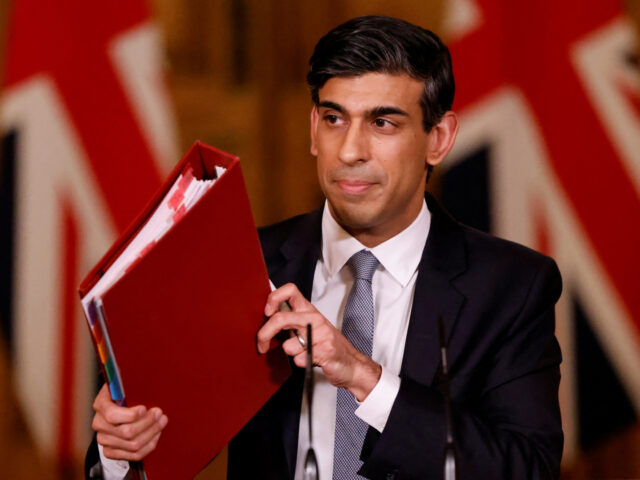Leaked documents from the Treasury department have revealed that former Chancellor and Prime Minister hopeful Rishi Sunak was the driving force behind attempts to forge “deeper trade ties” with Communist China.
Despite Rishi Sunak’s recent claims that he would be the candidate to “get tough on China”, a Treasury document entitled “policy outcomes of the 11th UK-China Economic and Financial dialogue” leaked to The Times of London, laid out how the Sunak-led department would bring the British and Chinese economies into close alignment.
In what appears to be an attempt to mollify growing distrust in Beijing over the National Security and Investment Act, which empowers the British government to block foreign acquisitions of companies in the UK on the grounds of national security.
The document goes on to lay out several specific economic areas for future cooperation, including inviting the £1 trillion China Investment Corporation sovereign wealth fund to open up a “representative office” in the UK to mark its role as a “major investor”.
The policy paper also suggested that the British government could remove regulations to allow Chinese firms onto the London Stock Exchange. The government would also seek to allow the CCP to issue debt in Chinese currency — the renminbi — in the United Kingdom, with the goal of making London a “leading offshore hub” for Chinese money and debt.
Stating that the UK was the “market of choice” for China in terms of international finance, it stated: “China recognises the unparalleled depth & liquidity of London’s capital markets, and the opportunities this presents.”
Sunak dropped the deal with China over national security concerns
But the leaked Treasury document reveals for the first time how far things went before he did so
The draft deal was ready to go – it was just waiting on meeting between Sunak & his Chinese counterpart pic.twitter.com/AoT1lT0hXj
— Steven Swinford (@Steven_Swinford) July 27, 2022
Unsurprisingly, the 47-page document made no mention of the UK Parliament declared genocide against the Uyghur Muslim people and other ethnic minorities in the Western region of Xinjiang, the decades of oppression in Tibet, nor Beijing’s blatant and repeated violations of the freedoms promised to the people of Hong Kong under Sino-British Joint Declaration.
While the deal was eventually dropped by Sunak following an assessment on national security, the breadth and detail show how far the government, under his leadership, was willing to go to increase ties with the communist regime for economic gain.
The leak will likely prove embarrassing for Mr Sunak, who earlier this week attempted to recast himself as a hawk on China affairs, vowing to “get tough” on intellectual property theft and the human rights abuses committed by Beijing.
It is doubtful that Sunak would have been able to convince the Conservative party membership, who will soon been tapped to decide whether it is he, or Foreign Secretary Liz Truss succeeds Boris Johnson as leader of the Tories and therefore as Prime Minister.
Indeed, earlier this month, the Global Times, one of the chief foreign language mouthpieces for the Chinese Communist Party all but endorsed Sunak in the race to replace Johnson, describing the former Chancellor as the only candidate with a “pragmatic view of developing balanced ties with China.”
Communist China Backs World Economic Forum Acolyte Rishi Sunak to Replace Boris Johnson https://t.co/eTBGkVthXd
— Breitbart London (@BreitbartLondon) July 17, 2022
Sunak, a former Goldman Sachs banker and acolyte of the World Economic Forum, has previously maintained the typical globalist line towards China, namely that the West must cooperate with the murderous regime in order to meet climate and other Great Reset agenda goals.
Despite the damage inflicted on the British economy by the Wuhan virus, as recently as January, Sunak was still calling for a “complete sea change” in relations with China after relations soured during the pandemic.
The former Chancellor, who played the role of Brutus in taking down Boris Johnson’s premiership, became one of the richest members of the House of Commons after marrying into the upper echelon of India’s business elite. Sunak’s wife, Akshata Murty is the daughter of billionaire InfoSys founder N.R. Narayana Murthy, both of whom maintain significant shares in the tech company.
InfoSys, a listed partner of the World Economic Forum (WEF), owns two Chinese subsidiaries, Infosys Technologies (China) Co Limited and Infosys Technologies (Shanghai) Co Limited. According to the Daily Mail, the Chinese branches of the company had an income of £134 million last year.
Follow Kurt Zindulka on Twitter here @KurtZindulka

COMMENTS
Please let us know if you're having issues with commenting.